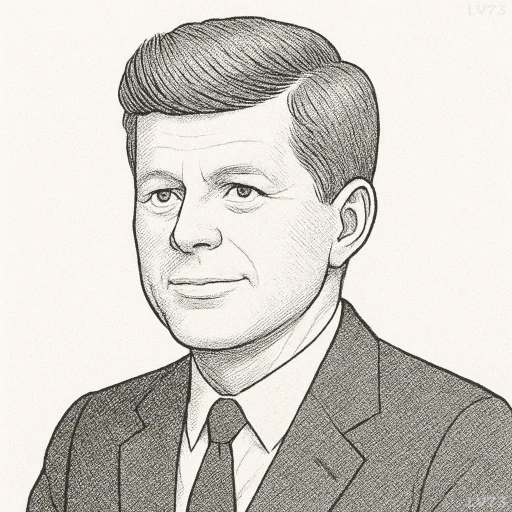“Communism has never come to power in a country that was not disrupted by war or corruption, or both.”

- May 29, 1917 – November 22, 1963
- American
- Politician
table of contents
Quote
“Communism has never come to power in a country that was not disrupted by war or corruption, or both.”
Explanation
In this quote, John F. Kennedy asserts that communism—as an ideology and form of government—has historically gained power in nations that were already in a state of disarray, often due to war or corruption. This reflects Kennedy’s understanding of geopolitics during the Cold War, when communism, particularly in the form of Soviet-style socialism, was seen as a threat to democratic capitalism. Kennedy’s words highlight a recurring historical pattern: communism tends to rise in the wake of social, political, or economic crises, when a country is weakened and ripe for radical change.
Kennedy’s statement is likely a reflection on the post-World War II landscape, where many nations in Eastern Europe and parts of Asia were either devastated by war or had weak, corrupt governments that lacked legitimacy. In these environments, communism was presented as an alternative to the existing order, promising social justice, equality, and the elimination of exploitation. Countries like Russia (after the 1917 Revolution), China (after the Chinese Civil War), and later Cuba or Vietnam fit this pattern, where revolution and instability opened the door for communist movements to rise to power.
The historical context of the Cold War is crucial here, as Kennedy was deeply concerned with the spread of communism and the domino theory, which held that if one country fell to communism, neighboring countries would soon follow. However, his quote also underscores a broader lesson about the vulnerability of nations in crisis: political instability and social unrest can create openings for radical ideologies, whether left-wing or right-wing, to gain influence. In the case of communism, these ideologies were often seen as offering a solution to the suffering and inequality caused by war, economic collapse, or government corruption.
In the modern era, this quote serves as a reminder of the dangers of unchecked political corruption and the destabilizing effects of war, both of which continue to fuel the rise of extremist ideologies worldwide. Kennedy’s warning remains relevant today, as many nations continue to struggle with the root causes of conflict that create conditions for authoritarian or radical movements to take hold.
Would you like to share your impressions or related stories about this quote in the comments section?



